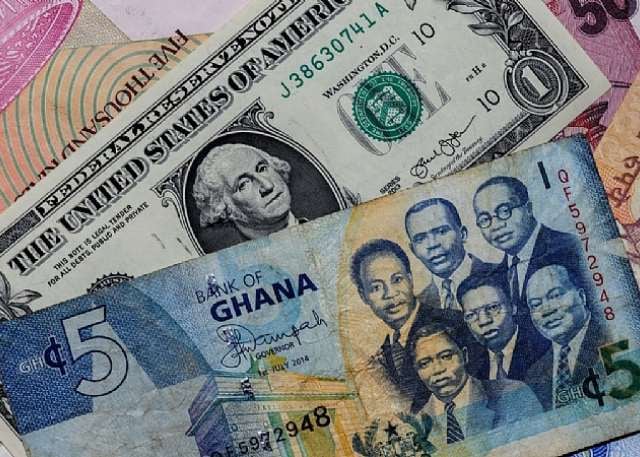The Ghanaian Cedi has experienced a notable appreciation against the United States dollar, marking a positive shift in the currency’s performance. As of Monday, May 12, 2025, data from Cedirates.com, a reliable source for currency and fuel information in Ghana, indicates a buying rate of GHS12.84 per dollar and a selling rate of GHS13.61. This signifies a strengthening of the Cedi, allowing individuals and businesses to acquire dollars at a more favorable rate. The appreciation is also reflected in forex bureau rates, with dollars being exchanged for cedis at GHS13.00 and cedis being converted to dollars at GHS13.65. This indicates a relatively narrow spread between buying and selling rates at these bureaus, suggesting a stable and competitive market for currency exchange.
The Cedi’s strengthened position is further evident in the interbank market, where the buying rate for dollars stands at GHS13.09 and the selling rate is GHS13.11. This minimal difference between buying and selling rates within the interbank market highlights a healthy level of liquidity and efficient currency trading among financial institutions. The appreciation against the dollar extends to other major currencies as well. The British pound is trading at an average rate of GHS16.91 when converting pounds to cedis and GHS18.00 for the reverse transaction. Similarly, the Euro’s exchange rate is GHS14.29 for acquiring cedis with euros and GHS15.30 for converting cedis to euros. These figures reflect the Cedi’s overall improved standing in the foreign exchange market.
On the Bank of Ghana’s interbank market, the pound is selling at a slightly higher rate of GHS17.44, while the euro is trading at GHS14.75. This variation in rates between the general interbank market and the Bank of Ghana’s platform can be attributed to the central bank’s role in regulating and influencing currency exchange rates to maintain stability and manage inflation. The Bank of Ghana’s rates often serve as a benchmark for other financial institutions and contribute to overall market stability.
Money transfer services, such as LemFi and Afriex, offer competitive rates for remittances from the US or the UK to Ghana. LemFi provides a rate of GHS12.97 per dollar, while Afriex offers a slightly more attractive rate of GHS12.34. For pound transfers, LemFi’s rate is GHS17.25, and Afriex offers a rate of GHS16.49. Regarding euro transfers, Afriex provides a rate of GHS13.94, and LemFi offers GHS14.61 per euro. These competitive rates reflect the growing importance of remittance flows to the Ghanaian economy and the efforts of these services to provide cost-effective transfer options.
The varying exchange rates across different platforms and services highlight the dynamic nature of the foreign exchange market. Factors influencing these rates include market supply and demand, macroeconomic conditions, government policies, and the specific operating models of individual financial institutions and money transfer operators. Understanding these nuances is crucial for individuals and businesses engaged in international transactions, as it allows them to make informed decisions and optimize their exchange strategies.
For digital subscriptions like Netflix, Spotify, or Apple Music using Visa and Mastercard, the exchange rate is consistent at GHS14.12 for both card networks. This standardized rate for digital services simplifies transactions for consumers and ensures predictable costs for accessing these platforms. Overall, the Ghanaian Cedi’s recent appreciation against major currencies reflects positive economic developments and creates favorable conditions for international trade, investment, and remittances. It also underscores the importance of monitoring exchange rates across various platforms to secure the most advantageous rates for different transaction types, whether it’s purchasing foreign currency, sending money abroad, or subscribing to digital services.














